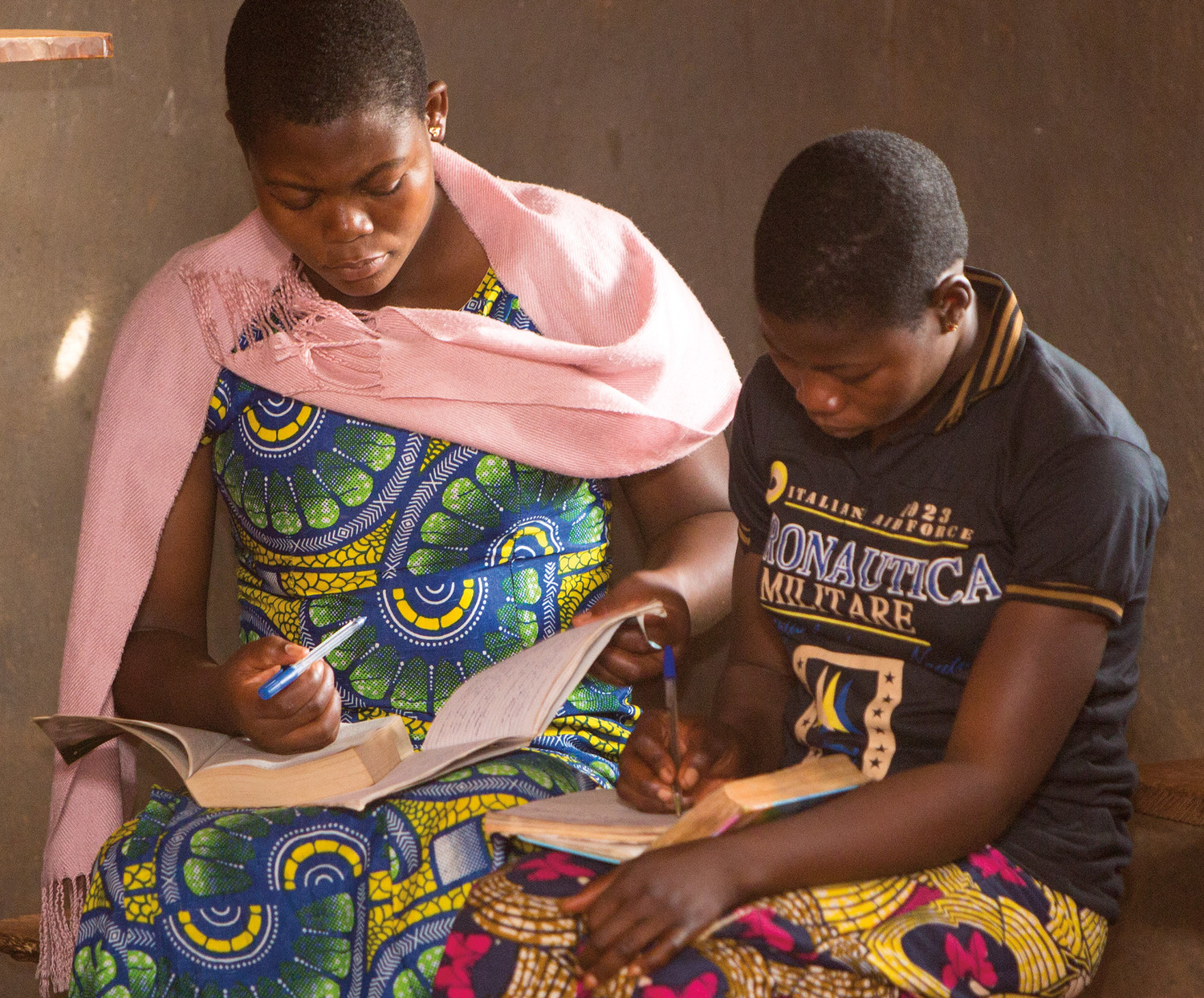I got to know a Canadian university student while on a Wycliffe Canada vision-building trip to Peru in 2013. Tiffarah Gosman is a young lady with a passion for justice, especially for preventing human trafficking. While many organizations focus on rescue and care for those caught in trafficking, she told me that few emphasize prevention. Her passion was to address the root causes. According to the U.S. government, human trafficking continues because it preys on the world’s poor, marginalized and uninformed peoples.
The answer is to make traffickers’ tactics—threats, manipulations and offers for escape from poverty—less appealing, less threatening and less believable. Educational programs and awareness campaigns have been tried. However, these miss the communities most vulnerable to trafficking: illiterate, minority-language speakers.
Tiffarah’s passion led her to explore the role of women’s literacy during an internship in Cameroon. As she worked alongside Wycliffe staff in Africa, she could see that as women learn to read, they can access vital safety information and become aware of support systems. Moreover, they are empowered to take action.
When people are enabled to pursue their interests, provide for themselves and their families, and contribute to their communities, they are less likely to be persuaded by the tricks of traffickers or to seek escape from their current situation.
Take it one step further. Though literacy programs in and of themselves have powerful social and economic impacts, when combined with the Living Word of God they gain even more transformative power. The message of deliverance, healing and hope found in the Bible lays a foundation for beliefs about human rights, protection of the weak and hope for the future.
Bible translation, mother-tongue education and distribution of Scriptures result in stronger and healthier communities and form a protective barrier against human trafficking and exploitation, both now and for future generations.
I saw this empowerment for myself a few years ago when I visited Cameroon. In the village of Bambalang on the Ndop Plain, I visited a literacy class, meeting in a home that was being rebuilt from a recent war. The mud block walls were still black with soot. In a marginalized part of a marginalized community, vulnerable to attack from other ethnic groups, a literacy class was a shining light. The women there were eager to learn to read for themselves. But we know that women don’t just read for themselves. There’s an old adage that if you teach a man to read, you’ve taught one person. If you teach a woman, you’ve taught a village. These women are tired of being pushed around, tired of being caught in the cycle of poverty. When I watched their kids running around, I realized they have hope unheard of in previous generations, because these women are learning to read.
But it doesn’t end there. The building also housed a young, vibrant and growing church. Needing more space, it has since moved into its own building. The Sunday morning I attended, I saw that the first people through the door were the same women from the literacy class.
These women aren’t satisfied with literacy; they want life and hope for their children.
